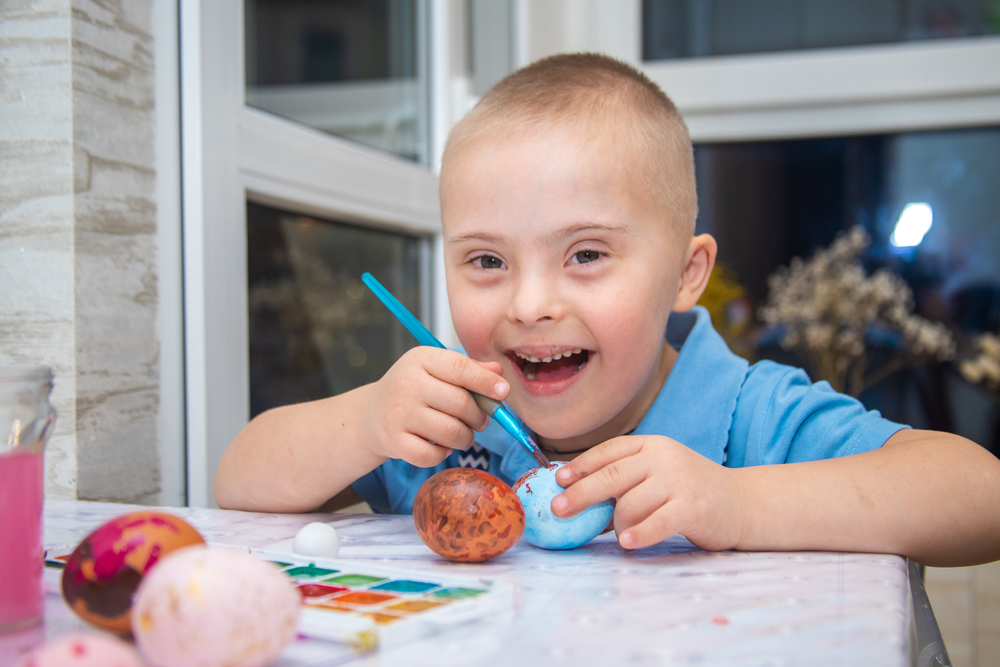
Developmental delays in children refer to a noticeable lag in a key area of development when compared to recognized milestones. In simpler terms, it means that a child is continually behind in certain areas of physical, emotional, cognitive, social, or speech development. These delays can manifest singularly or in multiple areas, impacting the child’s overall progress.
Importance of Early Recognition
The early years of a child’s life are critical for their development, with rapid growth occurring across various domains. Recognizing developmental delays as early as possible is paramount because:
Early Intervention: Interventions at an early stage can significantly improve outcomes. When delays are addressed promptly, children can catch up to their peers, reducing the possibility of long-term impacts.
Brain Plasticity: Young children’s brains are highly adaptable. Early therapeutic practices can reshape and rewire neural pathways, establishing a stronger foundation for future learning and growth.
Reducing Challenges: Without early detection and support, developmental delays can evolve into more severe educational and social challenges. Consequently, this can affect a child’s self-esteem and academic performance.
Empowering Families: Educating families about developmental milestones enables them to seek the appropriate support services and creates a nurturing environment that supports the child’s development.
Identifying Developmental Delays
Childcare providers play an instrumental role in recognizing the signs of developmental delays, which can include, but are not limited to:
Physical Delays: Struggling with fine or gross motor skills, such as grasping objects or coordinating movements.
Speech Delays: Difficulty in articulating words, forming sentences, or understanding others.
Social and Emotional Delays: Challenges with social interactions or expressing and managing emotions.
Cognitive Delays: Problems with learning, thinking, or problem-solving skills.
It’s important to understand that while all children grow and develop at their own pace, significant divergence from developmental milestones should be addressed.
Steps for Childcare Providers
Upon identifying a concern, childcare providers should:
Document Observations: Keep detailed records of the child’s progress and areas of concern.
Communicate with Parents: Engage in a sensitive and supportive dialogue with the child’s parents about the observed difficulties.
Refer for Assessment: Encourage professional evaluation by a pediatrician or a child development specialist.
Create an Inclusive Environment: Adjust activities and routines to accommodate the child’s needs and support their development.
Understanding Developmental Delays
Developmental delays in children are often surrounded by misunderstandings and misconceptions. It is essential to differentiate between the various types of delays and to recognize the nuanced differences among them. A developmental delay refers to a child missing developmental milestones across any number of domains, including physical, cognitive, communication, social or emotional, and adaptive development. Let’s delve deeper into the definition and explore the specific categories.
Defining ‘Developmental Delays in Children’
A developmental delay is identified when a child does not achieve their developmental milestones at the expected times. These milestones are tasks most children can do by a certain age, as defined by pediatric norms. Children develop at their own pace; however, when they fail to meet multiple key milestones, the concern for a developmental delay arises. Some children may catch up with their peers on their own, but many will require assistance to achieve their full potential.
Types of Developmental Delays
Cognitive Delay: Challenges with cognitive skills involve difficulties with learning, memory, problem-solving, and attention. It may manifest as trouble following directions, difficulty with reasoning, or struggling with concept understanding.
Speech and Language Delay: This delay involves problems with either spoken language or understanding verbal and nonverbal communication. It can appear as limited vocabulary, lack of sentence structure, or difficulty in understanding what others say.
Social and Emotional Delay: Affecting the ability to interact with others, this type of delay can show up as trouble with social cues, difficulty in forming friendships, or challenges in expressing feelings appropriately.
Motor Skill Delay: This deals with fine and gross motor skills alike. Children with motor skill delays might struggle with tasks like grasping and manipulating objects (fine motor skills) or walking and jumping (gross motor skills).
Adaptive or Self-help Delay: Here, children may have difficulty with daily living activities such as feeding, dressing, and toileting, showing more dependency than typical for their age.
Developmental Delay Examples and Warning Signs
Recognizing the warning signs of developmental delays can be tricky because there’s a broad range of what’s considered ‘normal.’ However, some red flags can signal a need for further evaluation:
By 3 Months: If an infant isn’t smiling, reacting to loud noises, following moving objects with their eyes, or showing an interest in faces, there could be cause for concern.
Between 6 to 9 Months: Warning signs may include the absence of babbling, lack of interest in games like peekaboo, and failure to reach for objects.
Around 1 Year: Look out for children who don’t crawl, can’t stand when supported, or don’t search for objects that they see you hide.
By 2 Years: A child who doesn’t use two-word phrases without imitation, doesn’t follow simple instructions, or doesn’t imitate actions or words may need assessing.
By 3 Years: Concern arises when children have difficulty walking up stairs, have unclear speech, show extreme difficulty with separation from their caregiver, or appear uninterested in interacting with other children.
By having a comprehensive understanding of developmental delays, their types, and the warning signs, parents, caregivers, and childcare providers can better support the timely identification and intervention that is integral to helping children achieve their full developmental potential.

Causes and Risk Factors of Developmental Delays in Children
Understanding the causes and risk factors of developmental delays is crucial for early identification and intervention. Developmental delays can be attributed to a variety of sources, some of which are genetic, while others stem from environmental factors or a combination of both.
Common Causes of Developmental Delays
Genetic Disorders: Certain genetic conditions, such as Down syndrome, fragile X syndrome, and other chromosomal abnormalities can lead to developmental delays.
Premature Birth: Babies born prematurely are at a higher risk for developmental delays due to underdeveloped body systems.
Prenatal Exposure: Exposure to harmful substances during pregnancy, such as alcohol, drugs, or certain medications, can interfere with a baby’s brain development.
Infections During Pregnancy: Infections like rubella, cytomegalovirus, and Zika virus can cause congenital disabilities affecting a child’s development.
Birth Complications: Complications such as lack of oxygen during birth (birth asphyxia) can result in developmental issues.
Metabolic Disorders: Conditions that affect metabolism, like hypothyroidism, can contribute to developmental delays if untreated.
Neurological Problems: Issues with the brain or central nervous system, such as cerebral palsy or muscular dystrophy, can lead to delays in various development areas.
Genetic Risk Factors
Family History: A family history of developmental disorders can increase the likelihood of developmental delays.
Inherited Conditions: Some genetic conditions are passed down from parents to children and may not be apparent in the parents themselves.
Environmental Risk Factors
Socioeconomic Factors: Children from families with limited resources may experience delays due to factors like malnutrition, inadequate healthcare, or stimulation-poor environments.
Exposure to Toxins: Lead exposure, either prenatally or in early childhood, can affect cognitive and physical development.
Quality of Care: Neglect or a lack of responsive caregiving can lead to attachment disorders and developmental issues.
Cultural and Linguistic Factors: For children raised in a bilingual environment or those from minority cultures, there may be apparent delays in language development which are not indicative of true language disorders.
It is paramount for both parents and professionals to be aware of these risk factors and observe children closely for signs of developmental delays. Early identification coupled with the right interventions can mitigate the effects of these delays on a child’s long-term development.
For detailed information on genetic and environmental factors that influence child development, resources such as the Centers for Disease Control and Prevention (CDC) offer comprehensive guides and studies. Their website is a valuable source of information for understanding developmental milestones and the potential causes of delays.
By recognizing the intersection of genetic predispositions and environmental circumstances, clinicians and childcare providers can better tailor interventions that address the individual needs of each child. It is the synergy of targeted support and early recognition that can truly change the trajectory of a child’s developmental path.

Supporting Children and Families with Developmental Delays
Childcare providers play a pivotal role in supporting children with developmental delays. Their expertise and observations can be instrumental in not just identifying potential delays but also in fostering an environment that encourages development across various areas. It is crucial for childcare providers to establish inclusive environments and to engage in effective communication with families regarding developmental concerns and strategies for support.
Role of Childcare Providers in Supporting ‘Delayed Development’
Observation and Personalized Attention: Childcare providers should be astute observers, noting each child’s individual progress and any deviations from expected developmental milestones. They can then tailor activities to support the child’s specific needs.
Encouraging Development Through Play: Introducing play activities suited to the child’s level of development can stimulate growth in developmental areas. For example, puzzles and blocks can promote cognitive and fine motor skills, while group play can enhance social and emotional development.
Professional Development and Training: Staying informed about the latest research and strategies in early childhood development is essential. Providers should engage in ongoing training on identifying and working with developmental delays.
Collaboration with Specialists: In cases where specialized intervention is needed, childcare providers should work hand-in-hand with therapists and educators to integrate therapeutic exercises and approaches into the child’s daily routine.
Creating Inclusive Environments
Inclusive Activities: Designing activities that all children can participate in, regardless of their developmental levels, encourages inclusiveness and supports a diverse learning environment.
Adaptable Learning Materials: Providing a variety of materials that cater to different developmental needs can ensure that each child has an opportunity to learn and grow at their own pace.
Sensitivity Training: Staff should receive training to foster a compassionate and understanding atmosphere for all children, preventing stigmatization and promoting a sense of belonging.
Physical Space Considerations: The facility itself should be accommodating, with easy access for children with physical delays and quiet areas for those who may get overwhelmed in busy settings.
Communicating with Families about ‘Developmental Delays’
Open Lines of Communication: It is important for childcare providers to establish trust with families through open, ongoing communication. This means being available for discussions, providing regular updates, and offering a supportive ear.
Educational Resources: Providing parents with information about developmental milestones and resources can empower them to understand and support their child’s development at home.
Individual Meetings: Scheduling private meetings with families to discuss concerns and progress can make the conversation about developmental delays more personal and productive.
Community Resources: Sharing information about local support groups, intervention programs, and other resources can offer families additional support outside of the daycare environment.
By approaching developmental delays with a knowledgeable, inclusive, and communicative strategy, childcare providers can play a significant role in supporting children and families, and help ensure that each child has the best opportunity to thrive.

Intervention and Therapy Options for Developmental Delays
Interventions and therapy options for children with developmental delays are multifaceted and personalized to address the unique needs of each child. These are designed not just to mitigate the delays but also to enhance the child’s strengths and facilitate overall development.
Early Intervention Programs
Purpose and Efficacy: Early intervention programs target children from birth to three years old who are at risk for or are already showing signs of developmental delays. These programs are research-backed and have been shown to improve developmental outcomes significantly.
Services Offered: Such programs may offer a range of services, including but not limited to physical therapy, speech therapy, and occupational therapy, as well as educational and support services for families.
Access and Eligibility: Parents can access these programs through referrals from pediatricians, local health departments, or directly through the state’s early intervention system. Eligibility is determined through evaluations that assess the child’s current level of functioning against typical developmental milestones.
Individualized Family Service Plans (IFSPs): For those who qualify, an Individualized Family Service Plan is developed. This plan is tailored to the child’s and family’s needs and sets goals for the child’s development.
Specific Therapies for Developmental Delays
Physical Therapy: Focuses on improving gross motor skills, balance, and coordination. Activities might include exercises to strengthen muscles, improve mobility, and enhance coordination.
Occupational Therapy: Helps children develop fine motor skills, sensory integration, and daily living skills like dressing and feeding.
Speech and Language Therapy: Addresses challenges with communication, including difficulties in articulation, language comprehension, and expression.
Behavioral Therapy: Techniques like Applied Behavior Analysis (ABA) can help manage behavioral issues and improve social skills.
Play Therapy: Through structured play, children can work on emotional regulation and social skills in a more naturalistic setting, conducive to a child’s comfort and growth.
The Role of Individualized Education Programs (IEPs)
Customization: IEPs are specialized education plans designed for children aged 3 and older who have been identified as having a disability that affects their education. They are tailored to individual educational needs.
Process: To develop an IEP, a team of educators, specialists, and the child’s parents collaborate to assess the child’s educational needs and set annual goals. They also determine the services and support the child will receive.
Implementation: IEPs are implemented in the child’s educational setting, whether in a special education classroom, regular classroom, or a combination of both.
Evaluation and Adjustment: Regular assessments are made to ensure that the child is meeting the goals set out in the IEP. Adjustments are made as needed to better serve the child’s educational journey.
Each of these interventions and therapies aims not only to address the delays but also to provide children with the tools and skills necessary to navigate their world more effectively. By tailoring the interventions to each child, there is a greater chance of making significant progress and lessening the impact of the delays on their future development.
Through these therapies and educational plans, coupled with the support of dedicated professionals and informed parents, children with developmental delays have a strong foundation upon which to build a thriving and fulfilling life.
Legal and Ethical Considerations
When dealing with developmental delays in children, childcare providers, parents, and health professionals must navigate a complex landscape of legal and ethical considerations. The following in-depth examination provides guidance on the rights of children with developmental delays and the ethical implications of diagnosis and intervention.
Understanding the Legal Rights of Children with Developmental Delays
Children with developmental delays are protected under various federal and state laws that guarantee their rights to receive appropriate care and educational opportunities. Understanding these legal frameworks ensures that childcare providers and parents can advocate effectively for the child’s needs.
Individuals with Disabilities Education Act (IDEA): IDEA ensures that children with disabilities, including developmental delays, have the right to a Free Appropriate Public Education (FAPE) that meets their unique needs. Specifically, IDEA covers the development of Individualized Education Programs (IEPs) for children who qualify, beginning at age three, and Individualized Family Service Plans (IFSPs) for children from birth to age three.
Americans with Disabilities Act (ADA): ADA prohibits discrimination against individuals with disabilities in all areas of public life, including schools, transportation, and all public and private places open to the general public. Under ADA, reasonable accommodations must be provided to allow children with developmental delays equal opportunities to participate in programs and services.
Section 504 of the Rehabilitation Act: This civil rights law prohibits discrimination against individuals with disabilities in programs that receive federal financial assistance. It can be used to develop 504 Plans that provide services and changes to the learning environment to meet the needs of children with disabilities as adequately as those of other children.
Ethical Implications of Diagnosis and Intervention
Ethical considerations are intricately linked with the practices surrounding the diagnosis and interventions for developmental delays. It is crucial to approach each case with sensitivity, confidentiality, and professionalism.
Informed Consent: Parents or guardians must be fully informed about the nature and purpose of any evaluations, therapies, or interventions before they are carried out.
Confidentiality: All information regarding a child’s development, diagnosis, and treatment plan must be kept confidential and only shared with authorized personnel.
Non-Discrimination: Children with developmental delays must be treated with respect and dignity, and their care or education should not be compromised due to disability.
Best Interests of the Child: Any decision made must prioritize the best interests of the child, providing support that is tailored to their individual challenges and strengths.
Cultural Sensitivity: Providers must recognize and respect the diverse backgrounds of children and their families, ensuring that interventions are culturally appropriate and sensitive.
Interdisciplinary Collaboration: Ethical practice often requires collaboration between various professionals, including educators, therapists, and medical personnel, to provide comprehensive care for the child.
By adhering to these legal and ethical principles, all parties can ensure that children with developmental delays are given the opportunities and support they need to succeed in their developmental journey.
Conclusion
Developmental delays in children are more than transient milestones; they are pivotal indicators of a child’s overall well-being and future potential. The recognition and subsequent address of these delays can pivot the developmental trajectory of a child, fostering a pathway filled with learning, growth, and achievement. To underscore the profound impact early identification and intervention can have on a child’s life, we must embrace a multifaceted approach that includes education, support, and advocacy. Below is a detailed conclusion that encapsulates these vital aspects.
Importance of Recognizing and Addressing Developmental Delays
Life-Altering Interventions: Early detection of developmental delays can lead to interventions that are nothing short of life-altering. Through therapies and educational adjustments tailored to their individual needs, children are afforded the opportunity to overcome barriers and reach their fullest potential.
Positive Ripple Effects: Addressing developmental delays not only benefits the child but creates positive ripple effects throughout society. It can lead to reduced healthcare costs, a decreased need for special education, and an increased likelihood of future independent living and employment for these individuals.
Fostering Inclusion and Empathy: When we take steps to recognize and address developmental delays, we contribute to a culture of inclusion and empathy. We model a society that values every member’s contributions and recognizes that diversity in development is a natural and important facet of the human experience.
Social Implications: Timely intervention can profoundly affect a child’s social integration by facilitating better communication and interaction skills, enabling them to form meaningful relationships with peers and adults alike.
Emotional and Psychological Development: Recognizing and addressing delays early in life can help prevent secondary emotional and psychological issues caused by frustration and the awareness of being different from their peers.
Encouragement for Ongoing Education and Advocacy
Lifelong Learning for Providers: Childcare providers, educators, and therapists must be committed to lifelong learning. Staying abreast of the latest developments in early childhood education, therapeutic interventions, and inclusive practices can make a significant difference in the lives of children with developmental delays.
Parental Empowerment: Parents, as children’s primary advocates, should be provided with resources and training to understand developmental milestones and the importance of early intervention. Empowered parents can provide enriching environments at home that complement therapeutic strategies implemented by professionals.
Community and Policy Engagement: Advocacy for children with developmental delays does not stop with individual efforts—it requires community and policy-level engagement. Lobbying for appropriate funding, research, and policies to support early intervention programs is crucial.
Information Sharing: Childcare providers and parents should engage in regular information sharing, which can include workshops, support groups, and online forums. This not only strengthens the support network but also disseminates valuable insights into effective developmental delay strategies.
Interdisciplinary Collaboration: Establishing a robust network of interdisciplinary collaboration among healthcare professionals, educators, and therapists ensures a holistic and consistent approach to a child’s development.
By emphasizing these aspects, we encourage a proactive stance on developmental delays—one that is informed, compassionate, and forward-thinking. As a society, our responsibility lies in recognizing the potential within every child and in committing to the necessary steps that allow each one to express that potential fully.
FAQ’s
What are developmental delays, and how do they manifest in children?
A developmental delay refers to when a child is behind in a specific area of development compared to recognized milestones. These can be physical, emotional, cognitive, social, or speech delays and may impact one or multiple areas, affecting a child’s overall progress.
Why is early recognition of developmental delays important for a child’s future?
Early recognition is critical as interventions at an early stage can significantly improve outcomes, allowing children to catch up with their peers and reducing long-term impacts. Early therapeutic practices can tap into brain plasticity for better learning and growth, and early detection can prevent more severe educational and social challenges.
How can childcare providers identify signs of developmental delays?
Childcare providers can spot signs like physical struggles with fine or gross motor skills, speech difficulties in articulation or comprehension, social and emotional challenges in interaction or emotion management, and cognitive problems in learning or problem-solving.
What are some examples of developmental delays, and what warning signs should parents and caregivers look for?
Examples include cognitive delay with learning issues, speech and language delays with communication problems, social and emotional delays with interaction issues, motor skill delays, and adaptive or self-help delays. Warning signs vary by age but include not smiling by 3 months, absence of babbling by 6-9 months, no crawling by 1 year, not using two-word phrases by 2 years, and difficulty walking up stairs or unclear speech by 3 years.
What steps should childcare providers take upon identifying a developmental delay concern?
Childcare providers should document observations, communicate sensitively with parents, refer the child for professional assessment, and adjust activities and routines to support the child’s development needs.

 Español
Español